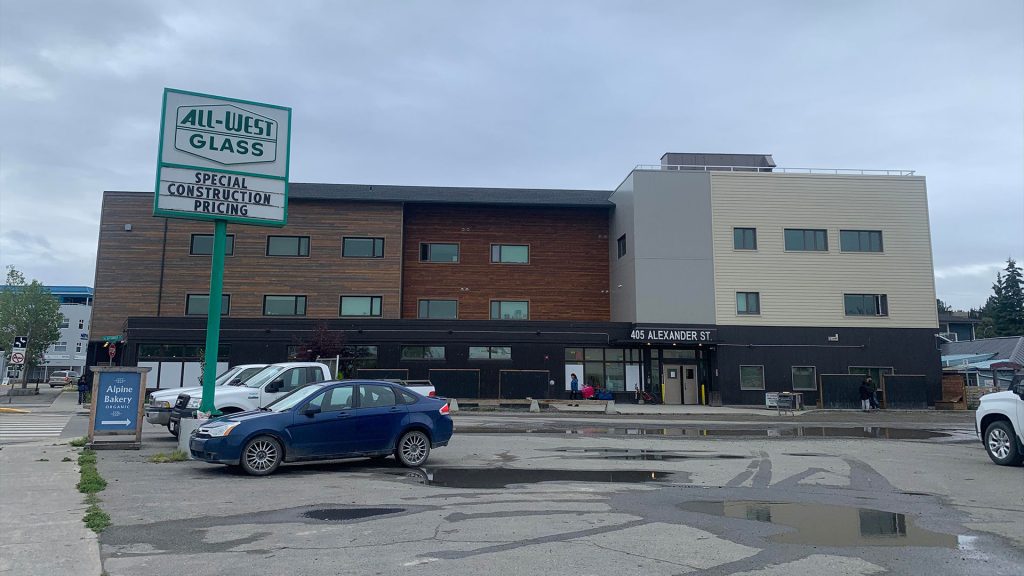
The Whitehorse Emergency Shelter on Alexander street. (File) Photo: Sara Connors/APTN News
Yukon government is investing around $300,000 into a new mobile safety pilot project for Whitehorse’s downtown core.
The pilot, which will be operated by the Council of Yukon First Nations (CYFN), aims to address downtown safety concerns after a popular bakery announced it was temporarily closing due to safety concerns and disturbances caused by people staying at the Whitehorse emergency shelter.
“Many of our First Nations and Indigenous people have legacy issues and trust issues with the RCMP and government services,” said CYFN executive director Shadelle Chambers.
“We wanted to create a community-based grassroots initiative to help support … vulnerable and marginalized populations in the downtown Whitehorse core.”
Chambers said the initiative is based on Winnipeg’s Bear Clan Patrol, a security group that helps Indigenous people stay safe in inner city neighbourhoods.
“It’s very much similar to that in terms of having our own people just checking on people, making sure that they have a safe place,” she said.
The pilot in Whitehorse will include a mobile outreach van that will make multiple stops throughout downtown to help people in need. Chambers said that might include helping someone who’s experiencing an overdose or driving someone to the city’s supervised consumption site.
Read More:
Yukon premier promises change in Whitehorse shelter after bakery closure
Reports on Whitehorse Emergency Shelter outline issues that need to be addressed
Yukon’s substance use emergency declaration ‘just blank words’ says advocate
Outreach workers will also be able to provide referrals for things like meal services and the RCMP.
Chambers said the program is intended to be staffed by paid outreach workers of First Nation’s descent.
She noted around 90 per cent of shelter clientele are Indigenous and that a recent point-in-time count likewise found that 90 per cent of people experiencing homelessness in Whitehorse are Indigenous.
“We know (the program) needs to be reflective of the Yukon’s First Nations’ population and of the culture,” she said. “We really want to ensure that it’s low barrier and that the services are reflective of the people who are accessing the supports and services.”
Chambers added improving community-safety will involve a “multi-pronged” approach that will also include other partners like the RCMP.
“RCMP and enforcement needs to be involved in certain aspects of these complicated social issues,” she said. “However, we also know that we don’t want to further victimize many of our vulnerable people who are suffering with addictions or mental health challenges. We don’t want to further perpetuate victimization.”
The new service will operate after-hours and on weekends. CYFN is currently in the process of staffing outreach workers.
Chambers said once staff is hired, outreach workers will travel to Winnipeg to shadow the Bear Clan Patrol for one week.










